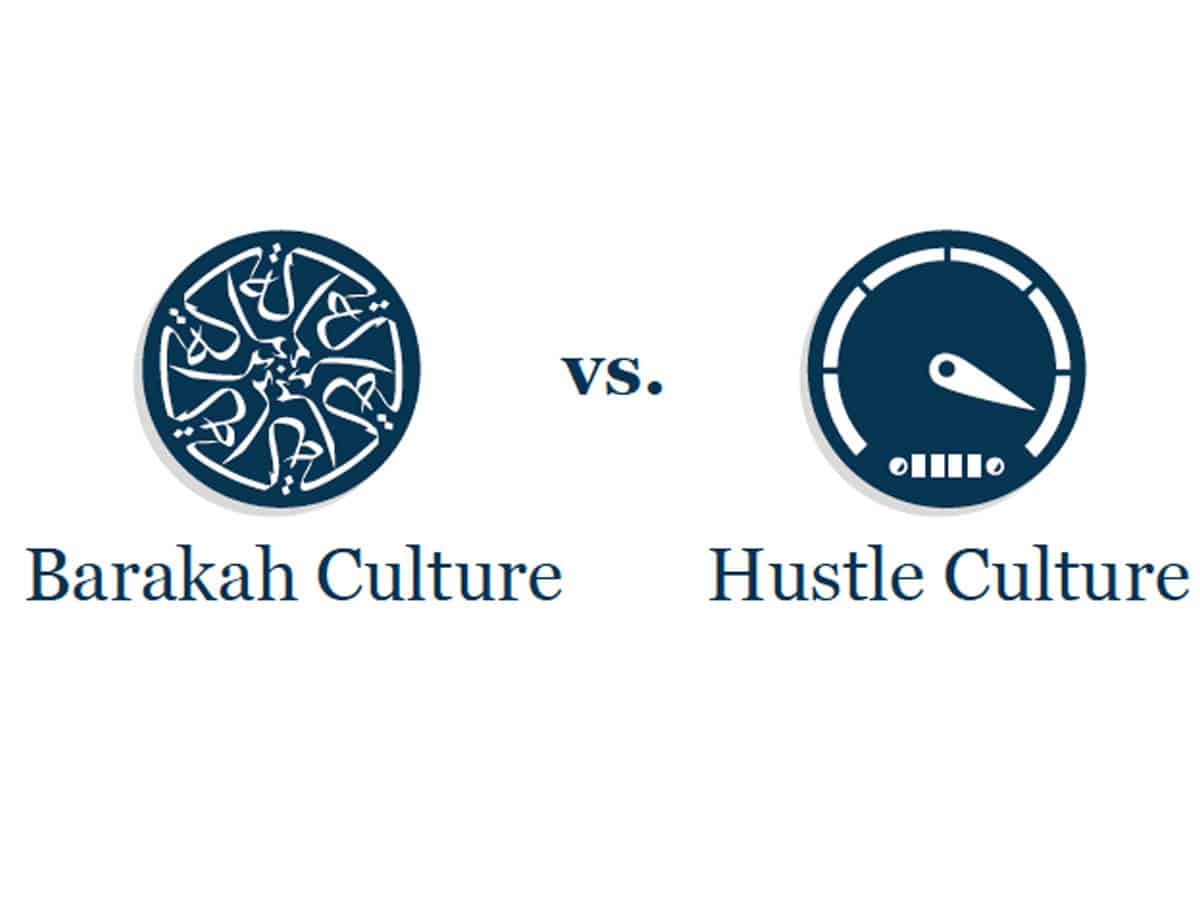وَأَنْ لَيْسَ لِلْإِنْسَانِ إِلَّا مَا سَعَى * وَأَنَّ” سَعْيَهُ سَوْفَ يُرَى
“And that there is not for man except that [good] for which he strives. And that his effort is going to be seen –” (Qur’an 53: 39-40)
Barakah culture is about having a mission that extends beyond yourself. It stems from recognizing that your ultimate purpose is to worship Allah and act as His representative (khalifah)on earth.
وَإِذْ قَالَ رَبُّكَ لِلْمَلَائِكَةِ إِنِّي جَاعِلٌ فِي الْأَرْضِ خَلِيفَةً ۖ قَالُوا أَتَجْعَلُ فِيهَا مَن يُفْسِدُ فِيهَا وَيَسْفِكُ الدِّمَاءَ وَنَحْنُ نُسَبِّحُ بِحَمْدِكَ وَنُقَدِّسُ لَكَ ۖ قَالَ إِنِّي أَعْلَمُ مَا لَا تَعْلَمُونَ
“And [mention, O Muhammad], when your Lord said to the angels, “Indeed, I will make upon the earth [khalifah] a successive authority….” [Qur’an 2: 30]
This is a position of trust and responsibility and calls for individuals and teams to think about how their lives need to carry meaning and impact beyond their bank accounts or profit lines. It demands that we live lives, both individually and collectively, that honour our calling as God’s khalifah on earth rather than working to serve ourselves and our own desires because we know we will be held to account for the choices we made.
In contrast, Hustle culture is all about personal success, measured in terms of —money, power, and fame. Sometimes it’s sugar-coated as “financial freedom,” or “leaving a legacy.” Though, in the end, if you dig deeper, it’s about the person and serving their own ego, or nafs, as we mentioned in the previous point.
‘Barakah culture is about having a mission that extends beyond yourself. It stems from recognizing that your ultimate purpose is to worship Allah and act as His representative (khalifah)on earth.’
One way to test if a person is a purpose/impact driven vs. personal success-driven is to ask them to remove their name or any mention of themselves from whatever project they work on, or try to take the money, power, and fame off the table, and then see how far they go with the project. In other words, would they still give their 110% if they wouldn’t get fame, wealth, or power in return?
Thought experiment for Individuals
What do you consider marks of success? How much of what you believe to be “success” is linked to your personal attainment vs. the purpose/impact beyond you?
What can you do to shift your mentality away from a personal definition of success and towards an achievement that’s driven by a broader sense of purpose and measured by impact in your community?
Thought experiment for Teams
If you weren’t paid to be on the team, which activities would you do anyway? Do you have a vested interest in what the team is trying to accomplish, beyond your own material success?

